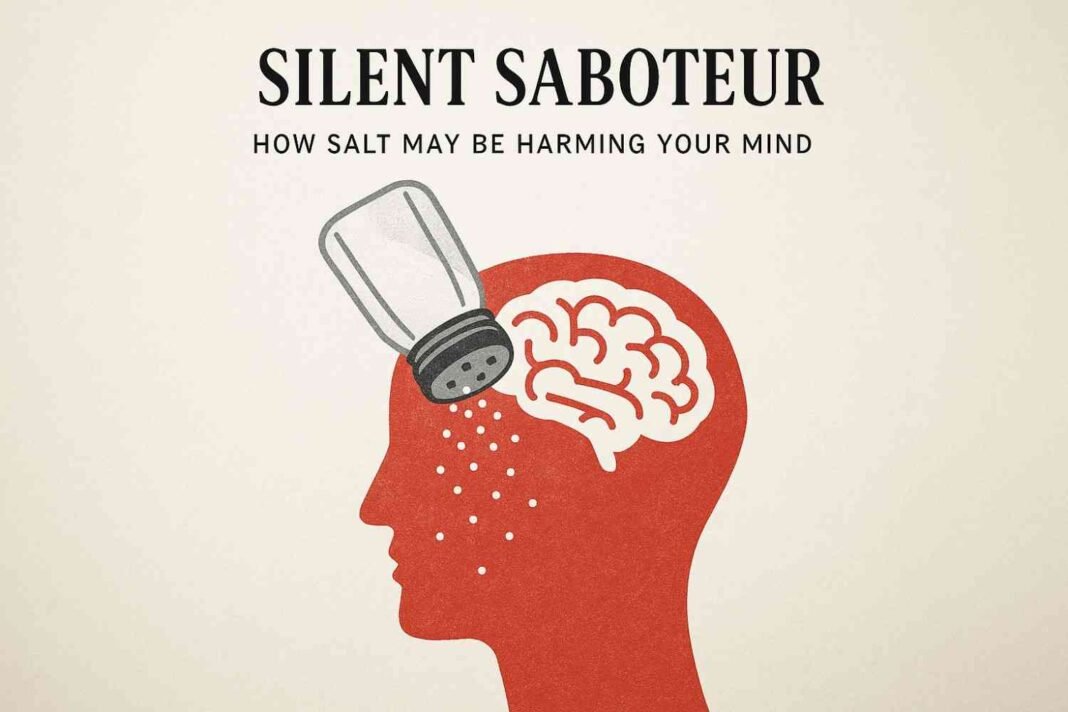Salt and the Brain: A Growing Public Health Concern
Salt is an indispensable nutrient, crucial for maintaining fluid balance, nerve impulses, and muscle function. But in the age of processed foods and convenience eating, most people are consuming far more sodium than the body actually needs. While excessive salt intake has long been associated with cardiovascular issues, researchers are now investigating its impact on the brain—and the findings are increasingly concerning.
A growing body of evidence suggests that high levels of sodium in the diet may negatively affect mental health. Studies have begun to draw links between salt consumption and heightened symptoms of depression, anxiety, and even an increased risk of cognitive decline and neurodegenerative diseases like Alzheimer’s.
How Salt Affects Mental Health
Our brains are sensitive to even small shifts in the body’s internal chemistry. When sodium levels are consistently elevated, they can interfere with hormonal regulation, increase blood pressure, and promote inflammation—factors that are all closely tied to brain health.
Chronic inflammation, for instance, has been strongly linked to the development of mood disorders. Inflammatory markers in the brain may contribute to disruptions in neurotransmitter systems, particularly those involved in mood regulation like serotonin and dopamine. When these systems are off balance, symptoms of depression and anxiety can intensify.
Moreover, high blood pressure caused by excess salt may damage blood vessels in the brain, limiting oxygen flow and reducing the brain’s ability to function optimally. Over time, this can lead to cognitive impairment and increase the risk of dementia.
New Research Shines a Light on the Risks
Recent studies have begun to explore the direct effects of salt on the brain more deeply. One animal study conducted by researchers at Georgia State University found that a high-salt diet activated stress-related pathways in the brain and led to heightened anxiety-like behavior in mice. Another study from the University of Colorado suggested that high sodium intake may impair memory and learning by triggering immune responses in the brain.
While human trials are still in the early stages, preliminary data point toward similar trends. A 2021 analysis published in the journal Nutritional Neuroscience found that participants with high sodium intake were more likely to report symptoms of depression and cognitive decline, especially when combined with low physical activity levels.
Processed Foods: A Hidden Culprit
The World Health Organisation (WHO) recommends consuming less than 5 grams of salt per day—equivalent to about one teaspoon. However, the average global intake often exceeds 9–12 grams daily, mostly due to processed foods such as bread, ready-to-eat meals, and snacks. Even items that don’t taste particularly salty—like breakfast cereals or sauces—can contain significant sodium levels.
This has prompted health experts to urge consumers to read nutrition labels carefully and opt for fresh, whole foods whenever possible. Reducing sodium intake may not only benefit your heart but also protect your brain from long-term damage.
What You Can Do
The good news is that the effects of excess salt are, to some extent, reversible. Lowering your sodium intake can reduce blood pressure, decrease inflammation, and help restore hormonal balance—all of which support better mental health. Consider cooking more meals at home, using herbs and spices instead of salt for flavor, and choosing low-sodium options at the grocery store.
Staying physically active, staying hydrated, and getting regular mental health checkups are also key strategies for protecting both body and mind.
Looking Ahead
The connection between diet and mental health is a rapidly growing field of study, and salt is now a part of that conversation. As evidence mounts, health authorities may soon begin emphasizing sodium reduction not just as a heart-healthy choice, but as a critical factor in preserving cognitive function and emotional well-being.
In the meantime, being mindful of your salt intake could offer unexpected benefits—not just for your arteries, but for your peace of mind.








